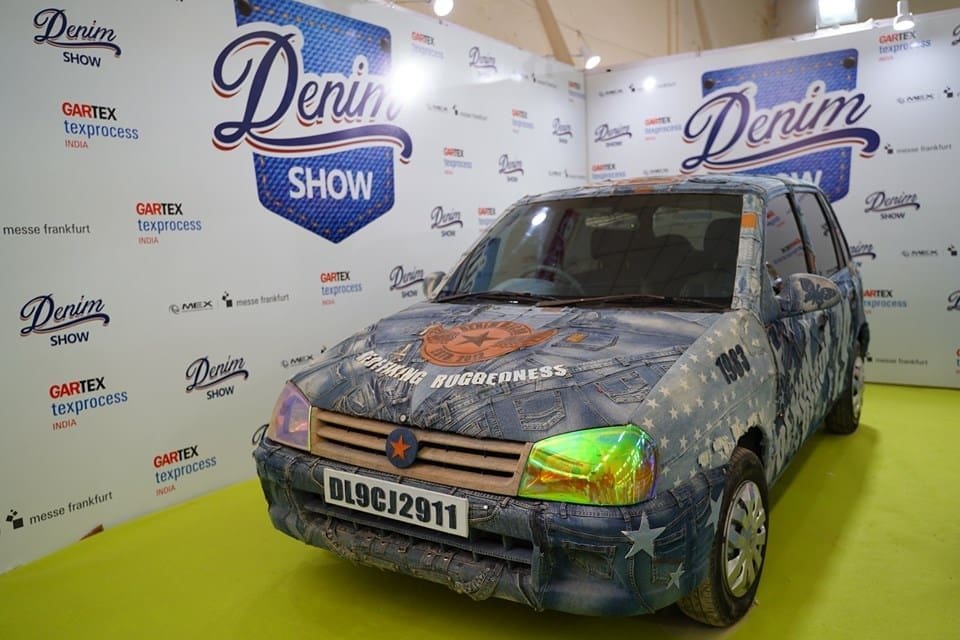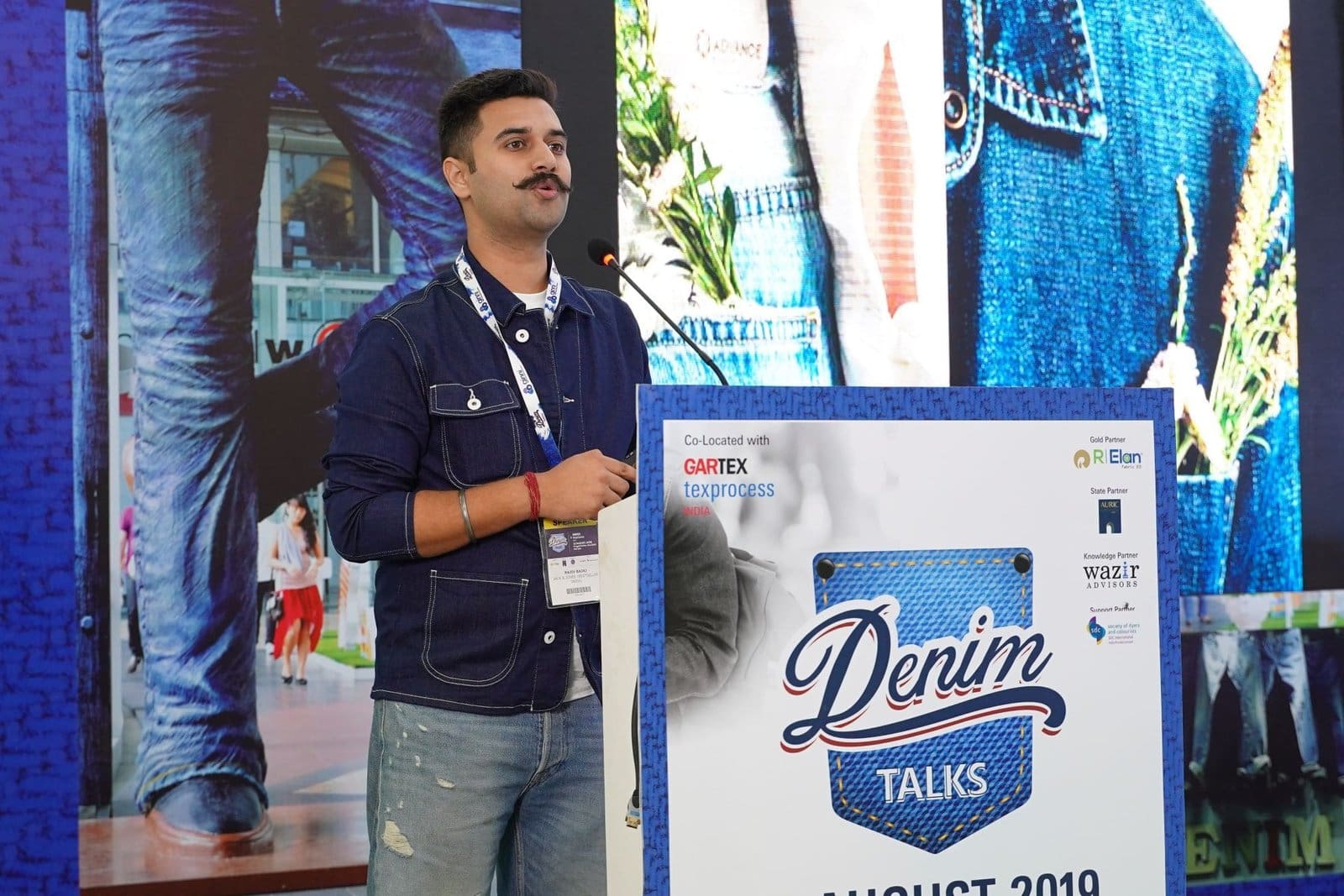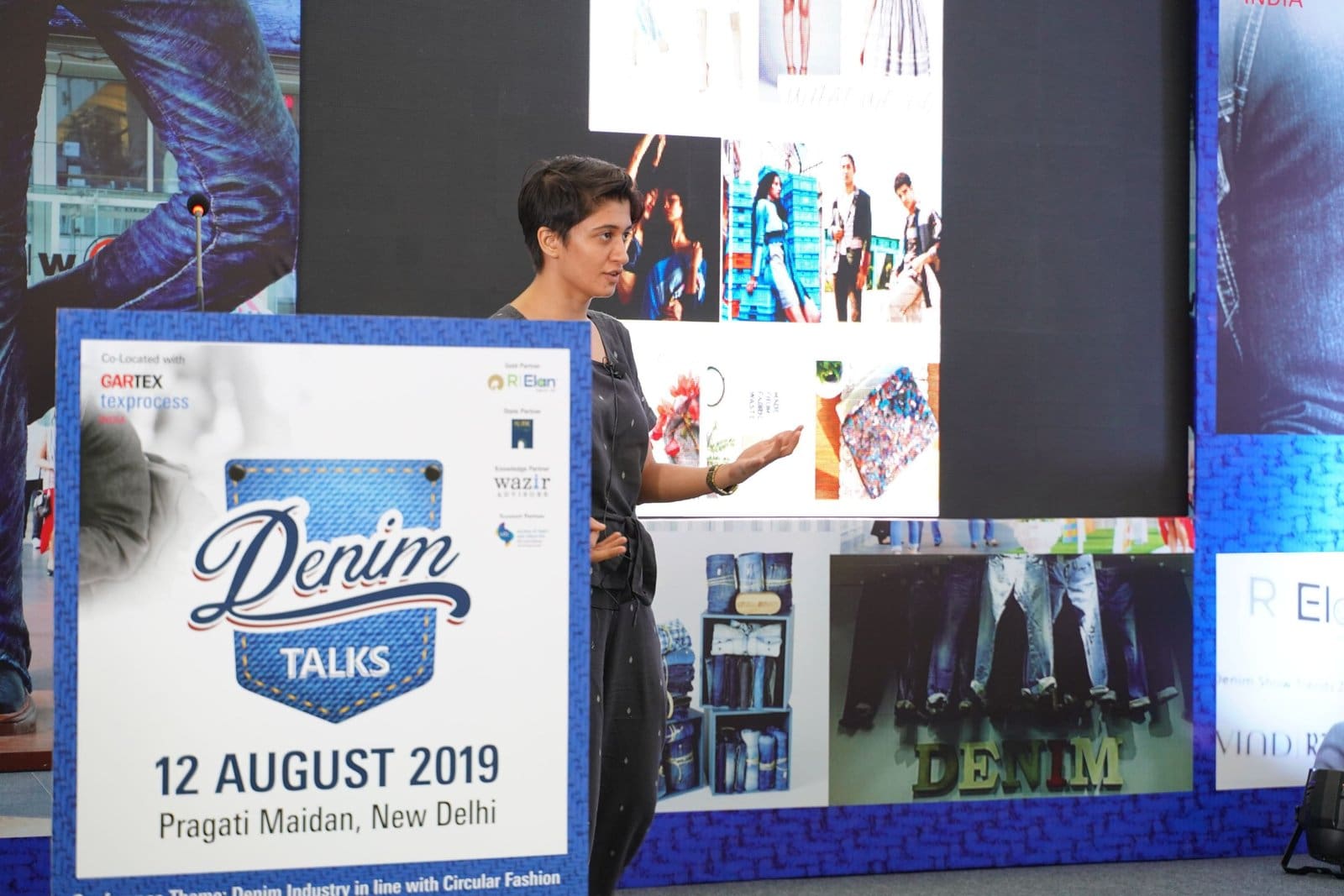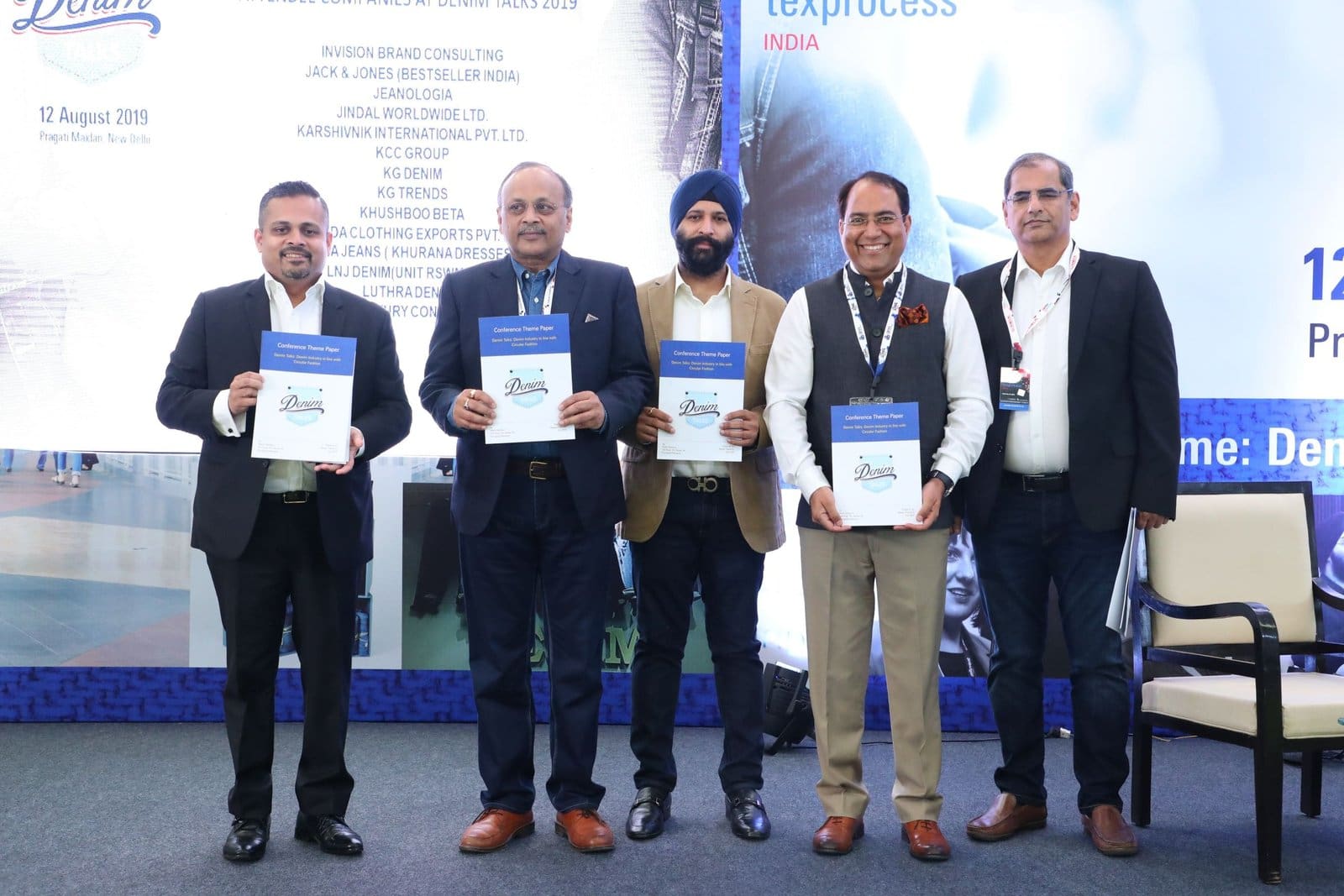From fashion conscious to conscious fashion – the 2nd edition of Denim Talks was all about bringing denim industry in line with circular fashion. The one-day forum which took place at the Denim Show at Gartex Texprocess India in New Delhi witnessed fashion and industry leaders sharing insights, experiences and global perspectives to keep the Indian denim industry on top of the game, sustainable and globally competitive.
Mr. Rajiv Bajaj, Product Manager – Jack & Jones, (Bestseller India)
Denim apparel is one of the fastest growing segments in the Indian apparel market, with a double digit growth forecast. During the recent Denim Talks held in the capital, industry stakeholders including fashion brands such as Pepe Jeans, Jack & Jones, Mandhana Retail Ventures Ltd (Being Human Clothing), Raymond UCO Denim, Reliance Industries, Ginni International among others came together with Denim Manufacturers’ Association to discuss the potential of denim, its prospective application areas, possible alternatives and how Indian denim industry can get in line with sustainability and circular fashion.
On the sidelines of Denim Talks, Mr Sharad Jaipuria, President, Denim Manufacturers’ Association & CMD, Ginni International Ltd shared “Indian denim industry currently stands at USD 3.6 billion, and has been growing at a CAGR of 9% over the last five years. The industry is expected to grow at CAGR of 11% in the next five years. The steady growth is credited to the rise in consumerism, bridging luxury gap and advancements in denim fashion which have given the segment a major boost. Fashion industry globally is perceived as less environment friendly, and denim manufacturers today must take the lead in embracing sustainability which needs to be imbibed in the entire textile value chain.”
Ms. Kriti Tula, Co-Founder & Creative Director, Doodlage
he forum, which brought together a delegation of 99 professionals, also saw the unveiling of a denim industry report by its Knowledge Partner – Wazir Advisors who indicated: “In five years, we are expecting denim consumption to almost double. India’s denim fabric exports have increased at a CAGR of five percent in last six years to reach USD 410 million.” Bangladesh over the last decade has been the biggest market for Indian denim fabric with a 50%+ share in India’s exports for six years running, highlighted the report.
When it comes to fashion apparels and garment segment, denim is the biggest rage in India and globally, and the Indian denim industry has sharply capitalised by moving forward with innovative fashion trends. But while fashion dominates the production, the forum played an important role in highlighting Global Organic Textile Standard (GOTS) and raw material alternatives for denim industry with Bombay Hemp as one such company working towards bringing Hemp as a sustainable substitute into focus. 35% of the jeans today are made more sustainable, much larger than any other segment in the fashion sector highlighting the significant role of the denim industry in bringing circularity and sustainability in fashion.
The speakers at the forum delved deeper into what it means to bring sustainable fashion with denim and the potential of Indian market for sustainable clothing. Already working in this sphere through her international brand Doodlage, Ms Kriti Tula, Co-Founder & Creative Director remarked: “Fashion is a 3 trillion USD industry. Only 2% is getting recycled today. We need to have brands that talk about the impact of fashion. The Indian market for fashion conscious accounts to 440 million millennials, which accounts for almost 34% of India.”
Mr Ravikant Prakash, Design Head- India, Arvind Ltd, “I have seen a great change in buying preferences of consumers. While trends definitely dominate choices, consumers today also want to see a story – where has the garment come from, what processes has it undergone, how has the brand integrated sustainability and so on. Denim is one fabric where reusing makes it more beautiful and that’s a trend that will stay on.”
With India standing as the second largest manufacturer in this sector, denim brands are keeping an eye on the domestic and global trends of the fashion-conscious consumer. Out of 51 mills in India, 34 were present at the Denim Show making it the largest denim industry show of its kind. Besides the exhibition and summit, the organisers also unveiled a denim-wrapped car as a star attraction together with denim guitar, handbags and several utility products at the trend zone highlighting diverse denim applications that the industry can focus on.
As brands gear up to design the future of denim, the Denim Talks will continue its focus on bringing domestic and global trends to the fore with the next edition slated at the Denim Show at Gartex Texprocess India in March 2020 in the fashion-capital – Mumbai.




